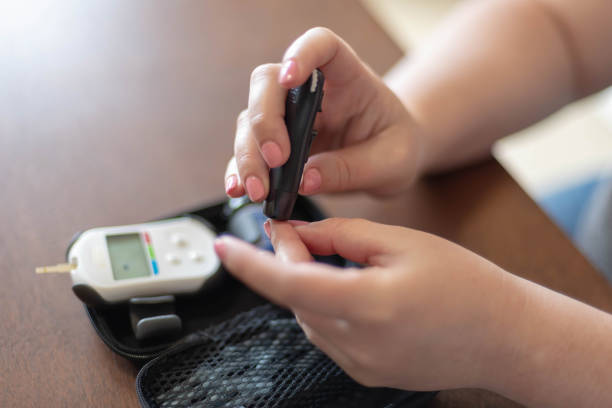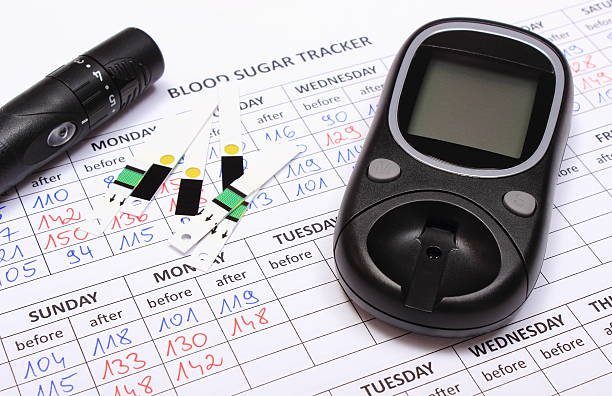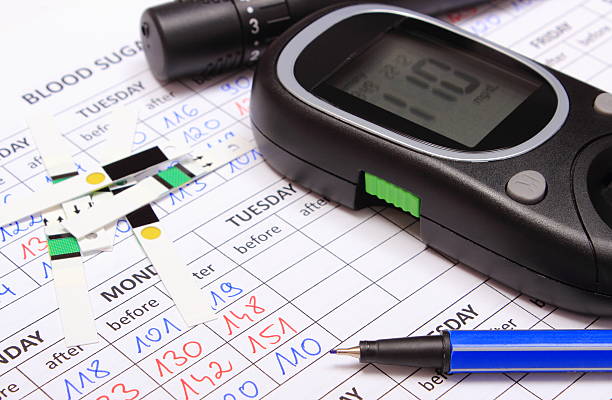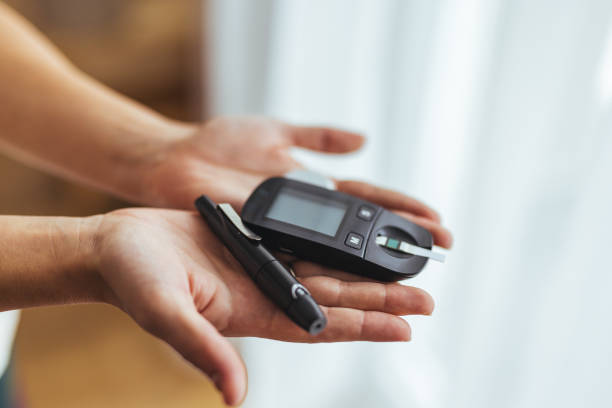Understanding Blood Sugar and Why It Matters
Blood sugar, also called glucose, is the main source of energy for your body. It comes from the food you eat and travels through your bloodstream to fuel your cells. Keeping the levels within a healthy range is crucial for overall well-being. If your levels are too high or too low, it can lead to serious health concerns, including diabetes, fatigue, and heart disease.
When blood sugar levels rise too high, your body may have trouble using insulin effectively. Insulin is the hormone responsible for helping glucose enter your cells, where it can be used for energy. If your body becomes resistant to insulin or does not produce enough, it can build up in your bloodstream. Over time, this can lead to prediabetes or type 2 diabetes, increasing the risk of complications like nerve damage, vision problems, and kidney disease.
On the other hand, if your blood sugar drops too low, your body may not have enough energy to function properly. This can cause symptoms such as dizziness, confusion, shakiness, and, in severe cases, fainting. Low blood sugar, also known as hypoglycemia, can be dangerous if not addressed quickly.
Maintaining balanced blood sugar levels through a healthy diet, regular exercise, and proper hydration is essential for long-term health. Making smart food choices, staying active, and managing stress can all help keep your glucose levels stable and support overall wellness.
Signs of Blood Sugar Imbalance
Your body gives clear signals when the levels are too high or too low. Recognizing these signs early can help prevent serious health problems. Here are the symptoms to watch for:
High Blood Sugar (Hyperglycemia)
When the levels are too high, your body may struggle to process glucose properly. Common symptoms include:
- Frequent urination – Your kidneys work harder to remove excess sugar from your blood.
- Increased thirst – High blood sugar can cause dehydration, making you feel constantly thirsty.
- Fatigue – Without proper glucose absorption, your body lacks the energy it needs.
- Blurred vision – High sugar levels can affect fluid balance in the eyes, leading to vision problems.
- Headaches – Dehydration and sugar imbalances may trigger headaches.
- Slow healing of cuts and wounds – Poor circulation and high sugar levels can delay healing.
- Unexplained weight loss – If your body can’t use sugar for energy, it may start breaking down muscle and fat instead.
Low Blood Sugar (Hypoglycemia)
When blood sugar drops too low, your body doesn’t have enough fuel to function properly. Symptoms include:
- Dizziness – A lack of glucose in the brain can make you feel lightheaded.
- Shakiness – Low sugar levels trigger the release of adrenaline, causing tremors.
- Sweating – Your body responds to low glucose by activating stress hormones.
- Confusion – Without enough fuel, your brain may struggle to think clearly.
- Irritability – Sudden mood changes or unexplained anxiety can be a sign of low blood sugar.
- Fast heartbeat – A rapid pulse is your body’s way of reacting to an energy shortage.
- Weakness – Low blood sugar can make muscles feel tired and sluggish.
If you frequently experience these symptoms, consult a doctor to check your blood sugar levels. Left untreated, blood sugar imbalances can lead to serious complications, including nerve damage, heart disease, and diabetes-related health issues. Managing it through a healthy diet, regular exercise, and proper medical care can help keep you feeling your best.more serious health complications, such as nerve damage, kidney disease, and vision problems.

Best Foods for Blood Sugar Control
Your diet plays a major role in managing your levels. Eating the right foods can help keep your glucose steady, reduce the risk of spikes and crashes, and support overall health. Choosing nutrient-dense, balanced meals can improve insulin sensitivity and help prevent complications like diabetes and heart disease.
Foods That Help Stabilize Blood Sugar
Incorporating these foods into your diet can help maintain healthy blood sugar levels:
✅ High-Fiber Foods – Whole grains, beans, lentils, and vegetables are rich in fiber, which slows glucose absorption and prevents blood sugar spikes. Foods like quinoa, brown rice, and chickpeas keep you full longer and support digestion.
✅ Healthy Fats – Avocados, nuts, seeds, and olive oil provide long-lasting energy and improve insulin sensitivity. These healthy fats help slow digestion, reducing the impact of carbohydrates on blood sugar.
✅ Lean Proteins – Chicken, fish, eggs, and tofu help stabilize it by slowing digestion and preventing sudden glucose spikes. Protein-rich meals also keep you feeling full and satisfied.
✅ Low-Glycemic Fruits – Berries, apples, and citrus fruits contain fiber and natural sugars that have a smaller impact on it compared to high-sugar fruits like bananas or pineapples. They also provide antioxidants that support overall health.
✅ Leafy Greens – Spinach, kale, and broccoli are packed with fiber, vitamins, and minerals that help regulate it. These nutrient-rich vegetables are low in calories and carbohydrates, making them a great addition to any meal.
✅ Fermented Foods – Yogurt, kimchi, and sauerkraut promote gut health, which may improve insulin sensitivity. A healthy gut microbiome plays a key role in blood sugar regulation and digestion.
Foods to Avoid
Certain foods can cause blood sugar spikes and contribute to insulin resistance. Limit or avoid the following:
❌ Refined Carbohydrates – White bread, pasta, and pastries break down quickly into sugar, causing rapid blood sugar spikes. Instead, choose whole grains like oats, quinoa, and whole-wheat bread.
❌ Sugary Drinks – Soda, energy drinks, and fruit juices contain high amounts of sugar, leading to sudden glucose increases. Water, herbal teas, or unsweetened beverages are better choices.
❌ Processed Snacks – Chips, candy, and packaged baked goods often contain added sugars and unhealthy fats, which negatively affect blood sugar control. Opt for healthy snacks like nuts, seeds, or Greek yogurt.
❌ Fried Foods – French fries, fried chicken, and other deep-fried foods contain unhealthy fats that contribute to insulin resistance. Baked, grilled, or air-fried options are healthier alternatives.
By focusing on whole, nutrient-dense foods and avoiding processed, high-sugar options, you can help keep your blood sugar balanced. A well-planned diet, combined with regular exercise and proper hydration, can support long-term health and prevent blood sugar-related issues.

Lifestyle Habits for Better Blood Sugar Management
Besides eating well, making small lifestyle changes can have a big impact on your blood sugar levels.
1. Exercise Regularly
Physical activity helps your body use insulin effectively. Exercise moves sugar from your bloodstream into your muscles, where it’s used for energy. Try:
- Walking: A 30-minute walk after meals can help lower blood sugar levels.
- Strength training: Lifting weights or resistance exercises improve insulin sensitivity and help build muscle, which uses glucose efficiently.
- Yoga or stretching: These activities reduce stress and can lower cortisol levels, which in turn helps regulate blood sugar.
- High-intensity interval training (HIIT): Short bursts of intense exercise followed by rest periods can improve insulin sensitivity more effectively than steady-state cardio.
2. Stay Hydrated
Drinking plenty of water helps flush out excess sugar through urine and prevents dehydration, which can affect blood sugar levels. Aim for at least 8 glasses of water per day. If you struggle to drink enough water, try adding slices of lemon, cucumber, or mint for flavor.
3. Manage Stress
Stress can raise blood sugar levels by increasing the hormone cortisol. Chronic stress can lead to insulin resistance over time. Reduce stress with:
- Meditation: Practicing mindfulness and deep breathing can lower stress and improve overall well-being.
- Hobbies: Engaging in activities like painting, reading, or gardening can help lower stress levels.
- Social support: Spending time with loved ones can help reduce anxiety and promote emotional health.
4. Get Enough Sleep
Poor sleep affects insulin sensitivity and can lead to higher blood sugar levels. Aim for 7-9 hours of quality sleep each night. To improve sleep quality:
- Establish a bedtime routine
- Avoid screens at least an hour before bed
- Keep your room cool and dark
- Limit caffeine intake in the afternoon
Natural Supplements That Support Blood Sugar Control
Some natural supplements may help regulate blood sugar levels and improve insulin sensitivity. While these can be beneficial, it’s important to consult a healthcare professional before adding any supplements to your routine, especially if you have diabetes or take medication.
Top Natural Supplements for Blood Sugar Management
✅ Cinnamon – This popular spice may improve insulin sensitivity and help lower blood sugar levels. Studies suggest that cinnamon can slow glucose absorption, reducing post-meal blood sugar spikes. Ceylon cinnamon, often called “true cinnamon,” is the best choice for supplementation.
✅ Apple Cider Vinegar – Drinking diluted apple cider vinegar before meals may help reduce blood sugar spikes. It works by slowing the digestion of carbohydrates and improving insulin response. Mixing one to two tablespoons with water before eating can provide benefits.
✅ Magnesium – This essential mineral plays a key role in regulating insulin and glucose levels. A magnesium deficiency has been linked to insulin resistance, making supplementation helpful for blood sugar control. Magnesium-rich foods like almonds, spinach, and avocados also support healthy levels.
✅ Berberine – Found in plants like goldenseal and barberry, berberine is a natural compound that may be as effective as some diabetes medications in lowering it. It helps improve insulin sensitivity and reduces glucose production in the liver.
✅ Chromium – This trace mineral supports insulin function and may help lower fasting blood sugar levels. Studies suggest that chromium supplements can enhance glucose metabolism, but it’s best to get chromium naturally from foods like broccoli, whole grains, and nuts.
While natural supplements can support blood sugar management, they should be used alongside a balanced diet, regular exercise, and proper medical care. Always speak with a doctor before trying new supplements to ensure they’re safe and effective for your individual needs.

Monitoring Your Blood Sugar Levels
Regular monitoring is essential for managing it effectively. Checking your levels helps you understand how food, exercise, and daily habits impact your glucose. You can use a glucose meter for finger-prick tests or a continuous glucose monitor (CGM) for real-time tracking.
Keeping a journal of your blood sugar readings, along with notes on meals, physical activity, stress levels, and medications, can help you and your doctor identify patterns. This allows for necessary adjustments to your diet, exercise, or treatment plan.
Who Should Monitor Blood Sugar Levels?
Tracking blood sugar is especially important if you:
✅ Have diabetes or prediabetes – Regular monitoring helps prevent complications and keeps glucose levels in check.
✅ Take insulin or other blood sugar-lowering medications – Keeping track of your levels ensures you take the right dose at the right time.
✅ Experience frequent blood sugar fluctuations – If you often feel shaky, tired, or dizzy, tracking can help pinpoint triggers and improve stability.
✅ Want to understand how different foods and activities affect glucose levels – Monitoring allows you to see which meals, workouts, or habits help maintain stable blood sugar.
By staying consistent with blood sugar tracking, you can take control of your health and make informed choices to support long-term well-being. If you’re unsure how often to check your levels, consult your doctor for personalized advice.
Final Thoughts: Take Charge of Your Blood Sugar Today
Managing blood sugar is key to maintaining overall health and preventing long-term complications. By making mindful food choices, staying active, managing stress, and prioritizing quality sleep, you can keep your blood sugar levels stable and support your well-being. The key is consistency—even small, daily habits can lead to significant health improvements over time.
Taking control of your blood sugar doesn’t have to be overwhelming. Start with simple steps like eating balanced meals, incorporating regular movement, and tracking your glucose levels. Over time, these healthy choices will become second nature, helping you feel more energized and in control of your health.
💡 Do you have a favorite blood sugar-friendly recipe or a helpful tip? Share it in the comments below! If you found this article useful, spread the word by sharing it with your friends and family.
For more expert-backed health tips and resources, visit the American Diabetes Association.

